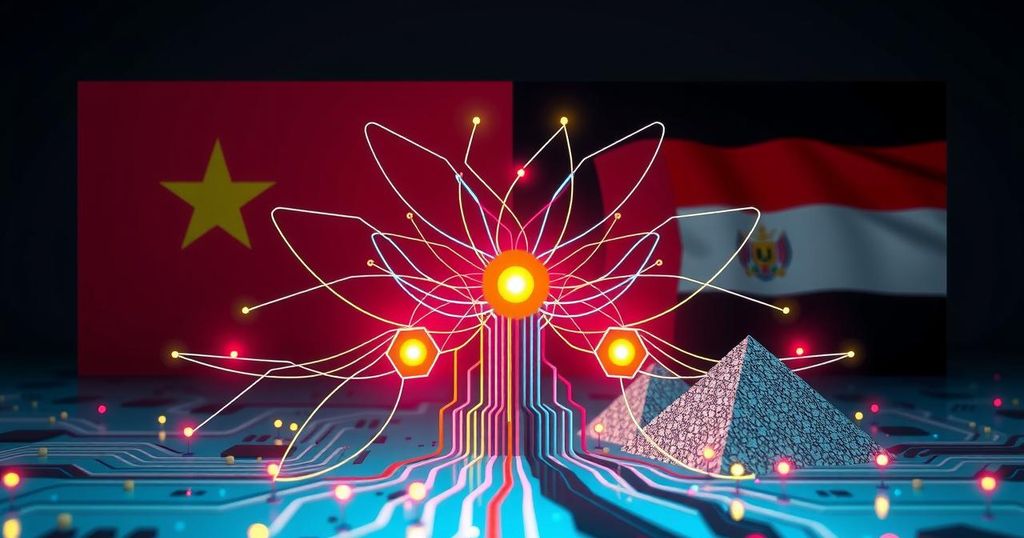Rosatom is intensifying its quantum technology partnerships with Vietnam and Egypt, aiming to extend its geopolitical influence. While inviting Vietnamese researchers to a conference signals cooperation, Egypt seeks to explore quantum applications in key sectors, leveraging Rosatom’s expertise. However, concerns regarding the transparency and competitiveness of Russia’s quantum systems persist, raising questions about the efficacy of its technological ambitions on an international scale.
Russian state corporation Rosatom is expanding its quantum technology collaborations with Vietnam and Egypt to broaden its technological influence. This approach aligns with Russia’s geopolitical and economic agendas, aiming to enhance collaboration with countries within the BRICS framework. Notably, Vietnamese researchers are set to attend a quantum technology conference in Moscow, marking a significant step towards collaboration and integration into BRICS scientific initiatives.
In addition to Vietnam, Rosatom’s engagement with Egypt focuses on exploring the applications of quantum technology in essential sectors, such as energy management, healthcare, and secure communications. This partnership aims to strengthen Egypt’s capabilities in quantum research while reinforcing Russia’s role in its nuclear energy infrastructure. Such strategic discussions indicate Russia’s intention to solidify its partnerships amid Western restrictions on advanced technologies.
Rosatom recently announced the development of a 50-qubit neutral atom quantum computing prototype, part of a broader $790 million initiative for quantum technologies. However, transparency remains a concern, as key performance metrics have not been disclosed, leading to uncertainty surrounding the competitiveness of these systems compared to other nations’ quantum advancements. Without independent validation, it is challenging to assess Russia’s position in the global quantum landscape.
Quantum technology has transitioned from being a niche research area to a strategic asset, essential for nations’ cybersecurity, energy optimization, and economic growth. For Vietnam, collaboration with Rosatom could accelerate its quantum research initiatives, while Egypt’s goal of modernizing its energy infrastructure positions it as a regional leader in quantum applications. The success of such ambitious collaborations will ultimately depend on effective execution and verified technological advancements, rather than mere diplomatic engagements.
In summary, Rosatom’s expansion into quantum collaborations with Vietnam and Egypt reflects a strategic move to enhance its influence in the global quantum sector. While welcoming opportunities for scientific cooperation, concerns regarding transparency and the actual performance of Russia’s quantum technologies remain pertinent. The ongoing partnerships may position both Vietnam and Egypt favorably within their respective regions, provided that they translate into concrete advancements in quantum research and application.
Original Source: thequantuminsider.com






